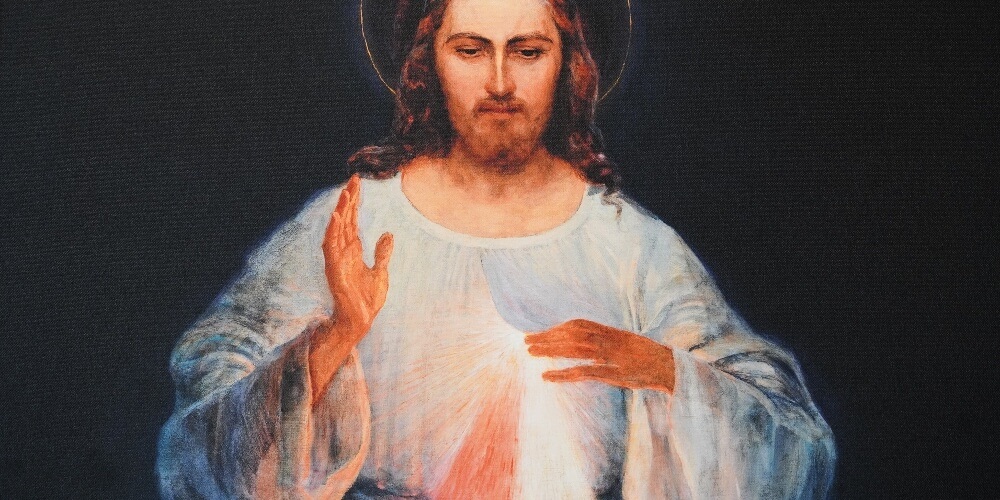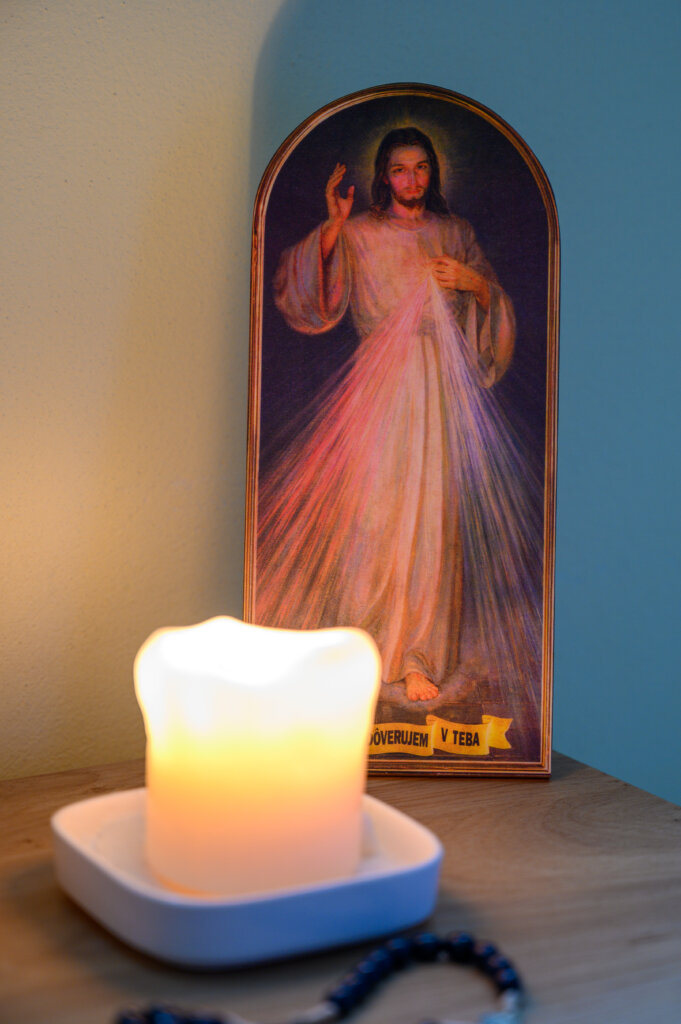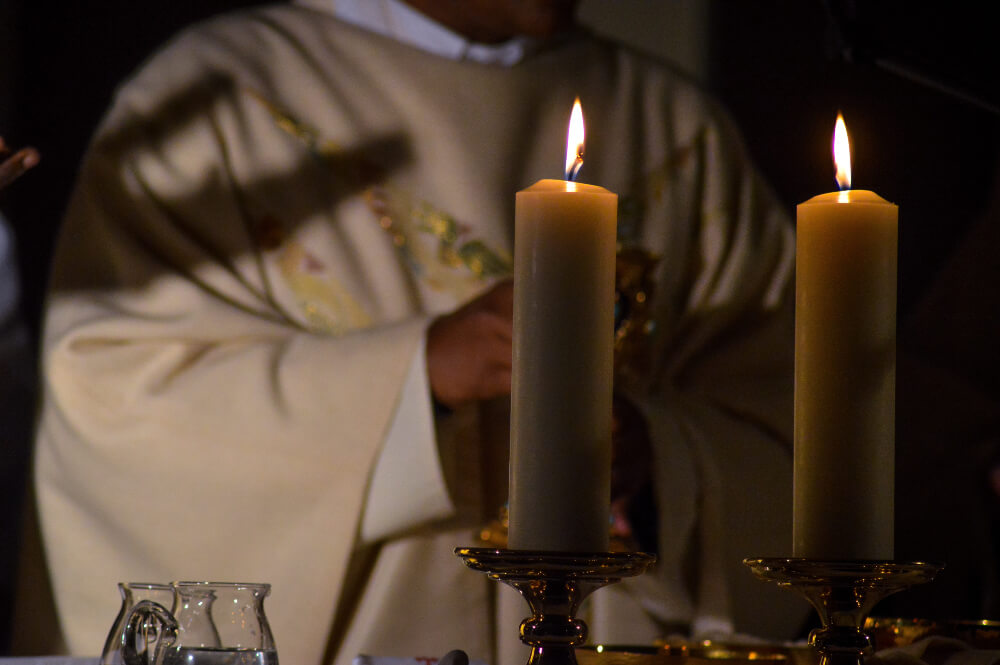
A humble soul does not trust itself, but places all its confidence in God. God defends the humble soul and lets Himself into its secrets, and the soul abides in unsurpassable happiness which no one can comprehend.
Diary of St. Maria Faustina Kowalska §593
I don’t know if it’s because I have nine children and therefore have an “excuse” to worry a lot or if it is because I am now in my fifties, but in recent years I have developed a bit of insomnia.
I say “a bit” because it is somewhat sporadic and unpredictable.
A few weeks ago, during one such sleepless episode, I began to pray and—while doing so—detected a sense of dread that I couldn’t put my finger on. In the darkness it seemed as if each minute torturously dragged on.
After some period of time, I sensed that the feelings were caused by an interior sorrow over a particular sin that was weighing me down. While I understood that pride was at the heart of it, it was in those hushed nighttime moments that I finally recognized it for what it really was: envy.
I’ve always thought of envy as a particularly ugly sin. So, when the antennae of my conscience picked it up, I desired to remedy it as soon as possible, especially since I know from experience that it can easily and quickly morph into something that is difficult to relinquish.
Grateful that St. Faustina’s Diary was next to my bed and within reach, I turned on my phone’s flashlight and opened it up.

The book is full of marked pages and underlined passages, so it wasn’t hard to find words that I needed to hear:
O Jesus, Supreme Light, grant me the grace of knowing myself and pierce my dark soul with Your light, and fill the abyss of my soul with Your own self…
Diary of St. Maria Faustina Kowalska §297
Throughout her diary, St. Faustina remarks how Jesus’ unfathomable mercy is poured out for all, but especially for sinners; she often mentions how little we souls acknowledge it.
She hints at why this might be in her entry on August 13th, 1936:
Tonight God’s presence is pervading me, and in an instant I come to know the great holiness of God. Oh, how the greatness of God overwhelms me! I then come to know the whole depth of my nothingness. This is a great torment, for this knowledge is followed by love. The soul bounds forward vehemently toward God, and the two loves come face to face: the Creator and the creature; one little drop seeks to measure itself with the ocean.
Diary of St. Maria Faustina Kowalska §702
St. Faustina was given the grace to see herself as she truly was. In doing so, she recognized the overwhelming goodness and mercy of God.
This knowledge is a real possibility for all of us. When we see ourselves as we are, we are in a much better position to see God for who He is—and when we recognize who God is, we see ourselves in the clear light of His truth.

Yet how often do we experience do this?
I thought about the sense of dread that was keeping me awake and recalled how it pertained to that sin which—even though I’d confessed it many times—tended to rear its ugly head and invade my peace, just as it was then invading my sleep.
Yet it occurred to me that I should be grateful that it was keeping me awake. Perhaps I needed to see a clear picture of myself so that I might tap into the great mercy of God: “As one little drop seeks to measure itself with the ocean.”
I once read that humility is never self-taught. Try as we might, we can’t just up and humble ourselves on our own. It is much more likely that we are humbled by some event or circumstance, and even by our own sinfulness.
This brings us back to what St. Faustina said about knowing ourselves and therefore seeing ourselves in the true light of God’s Mercy.
I once held a somewhat faulty belief about what it meant to be humble. Even after reading some of the lives of the saints, I would come away feeling as though humility resulted from what a person did or how they acted. I could even visualize how such a humble person might look: head bent, manifesting a quiet manner, interiorly recollected, at peace whether they were facing hardship or joy.
That was the image of humility in my mind.
Yet St. Faustina tells us of a different kind of humility, one that is based on trust in God’s Mercy:
“One time St. Faustina told her Lord Jesus that she wished to be hidden from everyone but Him: “I want to be a tiny violet, hidden in the grass, unknown in a magnificent enclosed garden in which beautiful lilies and roses grow.” She explained that the “beautiful rose and the lovely lily can be seen from afar, but in order to see the little violet, one has to bend low; only its scent gives it away” (Diary, 591). Saint Faustina wanted her soul to be firmly rooted in God.”
52 Weeks with St. Faustina by Donna-Marie Cooper O’Boyle
Humility, then, is perfect trust rooted in the mercy of God.
After all, Divine Mercy is who God is.
His mercy is ours for the taking. He is unceasingly available and “unfathomable” in His goodness.
And still we don’t seek it like we should. We desire to be holy, but are easily discouraged when attaining holiness seems elusive.
One priest wrote about it this way:
Discouragement comes when you see the high call of holiness and conclude that you will never be able to achieve it. You may become fixated on a certain fault and give up, thinking that you are destined to remain lukewarm, and that’s it. You may feel as though you are a nice person and that will have to suffice. But God has great plans for you! He not only calls you to be a saint, He knows you can become one. The key is to allow His Mercy to become so clear to you that you begin to realize sanctity is possible. Holiness, or sanctity, is not achieved because we are good; rather, it’s achieved because God is merciful and we have chosen to fix our gaze upon that Mercy.
Daily Reflections on Divine Mercy: 365 Days with Saint Faustina by Fr. John Paul Thomas

In those wakeful hours of the night, I became conscious of my sinfulness.
And yet, more important was the awareness that God’s Mercy is greater than all of my sins—and not only mine but those of the whole world.
In Notebook V of St. Faustina’s Diary there is a section entitled “Conversation of the Merciful God with a Sinful Soul.” In this beautiful dialogue are many consoling words of Jesus to the heart of a sinner such as the following passage:
Jesus: Child, speak no more of your misery; it is already forgotten. Listen, My child to what I desire to tell you. Come close to My wounds and draw from the Fountain of Life whatever you heart desires. Drink copiously from the Fountain of Life and you will not weary on your journey. Look at the splendors of My mercy and do not fear the enemies of your salvation. Glorify my mercy.
Diary of St. Maria Faustina Kowalska §1485
Let us always recognize that God is calling us to His unfathomable mercy, whether in the light of day or in the quiet darkness of a sleepless night. And let us remember to place our trust in Him alone.
St. Faustina, pray for us!
This article is taken from a reflection in the highly-praised series Divine Mercy. You can sign up for this powerful spiritual journey here.
All excerpts of the Diary used by permission of the Marian Fathers of the Immaculate Conception of the Blessed Virgin Mary.
Feature image and article image: Jesus appearing to St. Faustina. Photograph of painting taken by Phancamellia245. Feature image cropped from the original. Wikipedia CC BY-SA 4.0.



![Watch: Sneak Peek of “Divine Mercy” [Video]](https://www.goodcatholic.com/wp-content/uploads/2021/09/Divine-Mercy-Sneak-Peek.png)


